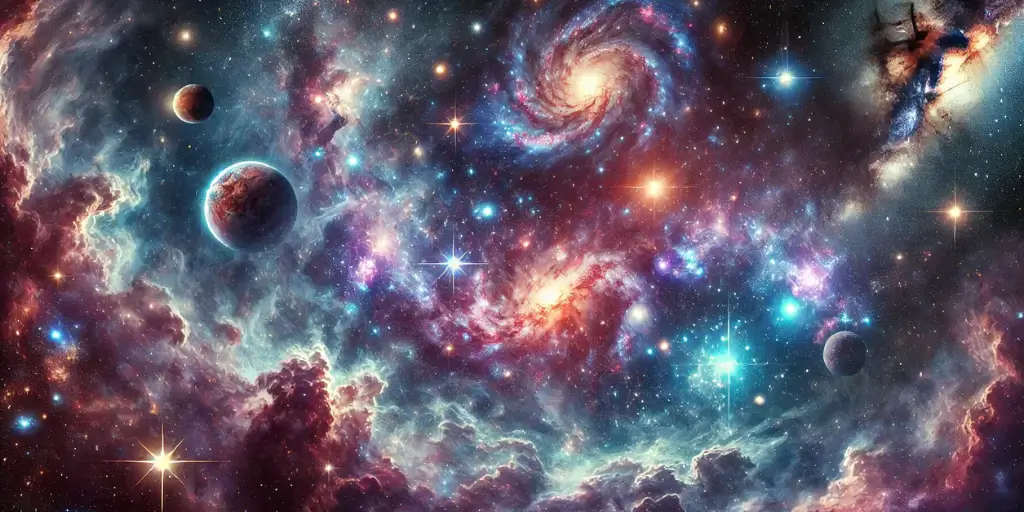Have you ever wondered how your body processes food and eliminates waste? The intricate connection between your digestive and excretory systems is a marvel of human biology that often goes unnoticed. 🍽️💩
Imagine this: You’re enjoying a delicious meal, savouring every bite. But have you stopped to think about what happens next? Your digestive system springs into action, breaking down food and absorbing nutrients. Meanwhile, your excretory system is gearing up to remove waste products. These two systems work in perfect harmony, like a well-oiled machine, to keep your body functioning optimally. 💪
In this blog post, we’ll unravel the fascinating relationship between your digestive and excretory systems. You’ll discover how these systems collaborate, share pathways, and even influence each other through hormonal interactions. We’ll explore common health issues that affect both systems and provide tips on maintaining their optimal function. So, buckle up and get ready to embark on an eye-opening journey through your body’s intricate waste management system!
1. Overview of Digestive and Excretory Systems

A. Primary functions of each system
Your digestive and excretory systems work together to process nutrients and eliminate waste. The digestive system breaks down food, absorbs nutrients, and moves waste through the intestines. The excretory system filters blood, removes metabolic waste, and maintains fluid balance.
| System | Primary Functions |
|---|---|
| Digestive | Food breakdown, nutrient absorption |
| Excretory | Waste removal, fluid balance |
B. Key organs involved
The key organs in these interconnected systems include:
- Digestive system:
- Mouth
- Esophagus
- Stomach
- Small intestine
- Large intestine
- Excretory system:
- Kidneys
- Ureters
- Bladder
- Urethra
2. The Digestive System’s Role

A. Breaking down food into nutrients
Your digestive system plays a crucial role in breaking down food into nutrients your body can use. As you eat, enzymes in your saliva begin breaking down carbohydrates. The stomach further breaks down proteins with acid and enzymes, while the small intestine continues the process.
| Organ | Primary Function |
|---|---|
| Mouth | Mechanical breakdown, carbohydrate digestion |
| Stomach | Protein breakdown, acid production |
| Small Intestine | Further breakdown and absorption |
B. Absorption of essential elements
3. The Excretory System’s Function

A. Removing metabolic waste
Your excretory system plays a crucial role in eliminating metabolic waste from your body. This process involves filtering blood and removing harmful substances, such as urea and excess minerals. The kidneys are the primary organs responsible for this function, processing about 180 litres of blood daily.
| Waste Product | Source | Elimination Method |
|---|---|---|
| Urea | Protein metabolism | Urine |
| Creatinine | Muscle metabolism | Urine |
| Excess water | Various metabolic processes | Urine, sweat |
B. Maintaining fluid balance
4. Shared Pathways and Organs

A. The liver’s dual role
The liver plays a crucial role in both digestion and excretion. In digestion, it produces bile for fat breakdown, while in excretion, it filters toxins from the blood. This dual function highlights the interconnectedness of these systems.
| Liver Function | Digestive Role | Excretory Role |
|---|---|---|
| Bile production | Aids fat digestion | Eliminates waste |
| Nutrient processing | Stores vitamins | Removes toxins |
B. Intestines are involved in digestion and excretion
Your intestines are vital for both nutrient absorption and waste elimination. The small intestine absorbs nutrients, while the large intestine absorbs water and forms faeces. This dual functionality demonstrates how closely linked digestion and excretion are in your body.
5. Nutrient Processing and Waste Management

A. From food to cellular energy
Your body’s digestive system breaks down food into nutrients, which are then absorbed into your bloodstream. These nutrients fuel your cells, providing energy for various bodily functions. The process involves:
- Mechanical breakdown (chewing, churning)
- Chemical breakdown (enzymes, acids)
- Absorption in the small intestine
- Cellular uptake and metabolism
| Nutrient | Primary Function |
|---|---|
| Carbohydrates | Quick energy source |
| Proteins | Tissue repair and growth |
| Fats | Long-term energy storage |
B. Toxin filtration and elimination
As your body processes nutrients, it also filters out toxins and waste products. Your excretory system plays a crucial role in this process, working alongside your digestive system to maintain homeostasis. Key components include:
- Liver: Detoxifies blood
- Kidneys: Filter blood and form urine
- Large intestine: Eliminates solid waste
6. Hormonal Interactions

A. Digestive hormones affecting excretion
Your digestive system produces hormones that influence excretion. For example, cholecystokinin stimulates bile release, aiding in fat digestion and waste elimination. Gastrin increases stomach acid production, affecting the ph of the excreted waste.
| Hormone | Origin | Effect on Excretion |
|---|---|---|
| Cholecystokinin | Small intestine | Stimulates bile release |
| Gastrin | Stomach | Alter waste ph |
B. Excretory hormones influencing digestion
Excretory hormones also impact digestion. Antidiuretic hormone (ADH) regulates water reabsorption in the kidneys, affecting hydration levels crucial for proper digestion. Aldosterone influences sodium retention, maintaining electrolyte balance essential for digestive processes.
7. Common Health Issues Affecting Both Systems

A. Dehydration and its effects
Dehydration can significantly impact both your digestive and excretory systems. When you’re dehydrated, your body struggles to process food and eliminate waste efficiently. Here’s how dehydration affects these systems:
| System | Effects of Dehydration |
|---|---|
| Digestive | – Constipation – Acid reflux – Slower nutrient absorption |
| Excretory | – Concentrated urine – Kidney stones – Urinary tract infections |
B. Digestive disorders impacting excretion
Certain digestive issues can have a ripple effect on your excretory system. For instance, chronic diarrhoea can lead to dehydration and electrolyte imbalances, affecting kidney function. Conversely, severe constipation can put pressure on your bladder, potentially causing urinary retention or incontinence.
8. Maintaining Optimal Function

A. Dietary considerations for both systems
You can support both your digestive and excretory systems through a balanced diet. Focus on fibre-rich foods, lean proteins, and plenty of fruits and vegetables. These choices aid in smooth digestion and efficient waste elimination.
| Nutrient | Benefits for the Digestive System | Benefits of the Excretory System |
|---|---|---|
| Fiber | Promotes regular bowel movements | Helps remove toxins |
| Protein | Supports enzyme production | Assists in tissue repair |
| Water | Aids in nutrient absorption | Facilitates waste removal |
B. Hydration’s importance
Staying well-hydrated is crucial for both systems. Water helps:
- Dissolve nutrients for absorption
- Flush out toxins through urine
- Maintain proper bowel function
Conclusion
Your digestive and excretory systems work in tandem to keep your body functioning optimally. From processing nutrients to eliminating waste, these interconnected systems play crucial roles in maintaining your overall health. By understanding how they work together, you can better appreciate the importance of caring for both systems.
Remember, maintaining a balanced diet, staying hydrated, and exercising regularly are key to supporting the health of your digestive and excretory systems. By taking care of these vital bodily functions, you’re investing in your long-term well-being and ensuring that your body can efficiently process nutrients and eliminate waste. Take charge of your health today by making choices that benefit these interconnected systems.







yong.shelley@gmail.com
April 28, 2025World’s First AI Agent Powered By ChatGPT-5…
That Writes And Ranks Anything We Want… On The First Page Of Google… With ZERO SEO. And Zero Ads…
https://www.youtube.com/@AISolutionsTop
schrader.virginia@gmail.com
April 28, 2025STOP Selling One-Off Products That Pay You Once And START Building A ‘Set It & Forget It’ System That Deposits Money Into Your Bank Account Every Single Month Like Clockwork! https://www.youtube.com/@AISolutionsTop
persse.rosario26@gmail.com
April 28, 2025Launch your own branded Chrome extension in just 15 minutes with zero coding required to instantly elevate your professional authority. Use our proven templates to streamline your operations or deliver white-labeled solutions to clients for effortless recurring revenue.
https://www.youtube.com/watch?v=ATYTVlN5MSM
noella.danner@hotmail.com
April 28, 2025Tap into decades of super-affiliate expertise with an intelligent software that automates everything from strategy to high-converting copy in just a few clicks. Launch profitable affiliate campaigns across any niche and secure lifetime access with a single payment—no subscriptions or hidden fees required
https://www.youtube.com/watch?v=GIWPFQOltPk
lettie.canter@gmail.com
April 28, 2025Stop losing money on visitors who leave websites and start automatically redirecting that “wasted” traffic toward your own offers for as little as five cents per person. Exit Traffic Network provides a completely hands-free, set-it-and-forget-it system that captures real desktop traffic from established platforms while you sleep
https://www.youtube.com/watch?v=3013L2Yxg1k
joel.fox.1965+clenta.com@gmail.com
April 28, 2025Create new automated passive income streams with Book Ninja, which uses AI to find profitable niches and fully assembles ready-to-publish books for Amazon in under 30 minutes. This is your chance to scale your business portfolio with digital assets that generate royalties for years without spending on ads, design, or writing.
https://www.youtube.com/watch?v=PQCSucpPt-0
mckenna.eleanore@hotmail.com
April 28, 2025Skip months of hard work and launch a high-converting AI business today using this professionally designed “Business In A Box”. With full Private Label Rights, you can rebrand these expert assets as your own and keep 100% of the profits from every sale.
https://www.youtube.com/watch?v=ksq5cZApb3E
krajewski.oren@gmail.com
April 28, 2025Launch a Local Toolkit Website that Business Owners Use Daily, Builds Trust Fast, and Turns Free Value into Paid Upgrades on Autopilot. All Done-for-You, Automated and Ready to Go.
https://www.youtube.com/watch?v=MoUzjvC5-UU
westmoreland.antoine80@msn.com
April 28, 2025Stop wasting months on content creation and start selling a professional, ready-to-use video course that positions you as an instant authority in the digital business space. This complete white-label package allows you to grow your email list and generate recurring income without spending a single minute on planning, scripting, or recording https://www.youtube.com/watch?v=ss4tux6Q4pI
boyles.salvatore@googlemail.com
April 28, 2025Scale your authority and warm up high-value leads on LinkedIn by generating tone-perfect, professional comments in just five seconds,. Stay consistently visible to your target audience and grow your business safely without bots for only $5 a month,.
https://www.youtube.com/watch?v=fnBU0pu0F_s
wiley.tebbutt9@yahoo.com
April 28, 2025Automate your business training and customer education with human-like AI teachers that explain any topic without you ever having to appear on camera. Scale your company’s knowledge delivery 24/7 and eliminate the cost of hiring expensive instructors using this 100% automated teaching system.
https://www.youtube.com/watch?v=mHujw2NMdIU
fermin.esters11@gmail.com
April 28, 2025Automate your income with our AI system that generates all your content for you, delivering up to $3,000 monthly without the need for selling or hiring. Simply post ready-made materials to a unique platform with free lifetime traffic and receive direct payments while the system does all the heavy lifting for you.
https://www.youtube.com/watch?v=yy-jNgaxPbs